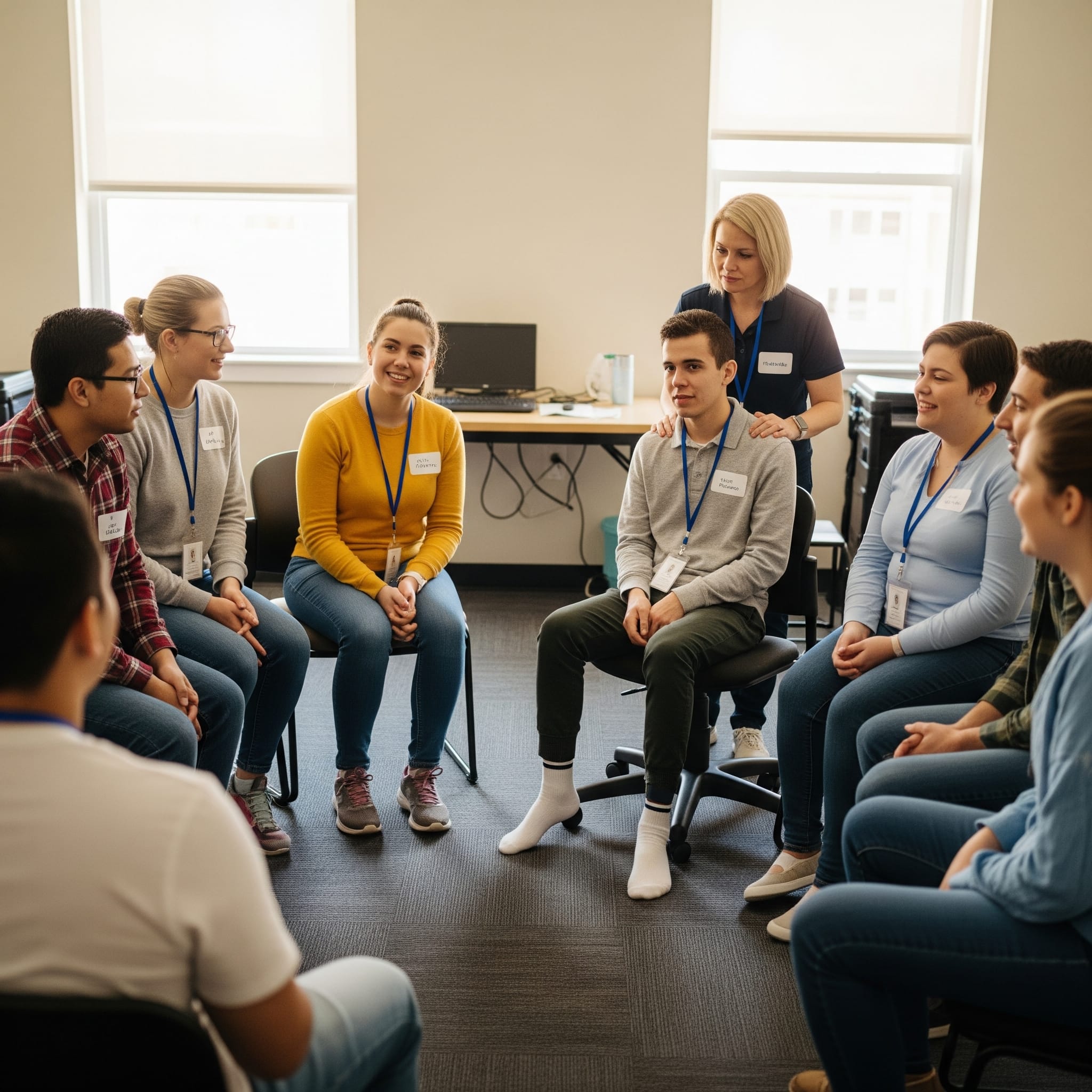For families whose child has lived with a birth injury since infancy, the transition into adulthood marks a significant and often complex period. Transitioning Adulthood Birth Injury survivors undertake involves unique challenges related to independence, education, employment, and social integration. However, it also presents new opportunities for growth and self-determination. Understanding this crucial phase and accessing appropriate support is vital for young adults with birth injuries and their families.
Understanding Transitioning Adulthood Birth Injury Entails
Transitioning Adulthood Birth Injury survivors experience is a multifaceted process that extends beyond simply reaching the age of majority. It involves shifting from pediatric to adult healthcare, exploring vocational training or higher education, navigating independent living options, and managing financial resources, often derived from birth injury compensation. The goal is to empower young adults with disabilities to achieve the greatest possible independence and lead fulfilling lives within their communities.
Key Challenges in Transitioning Adulthood Birth Injury Survivors Face
The path to adulthood for individuals with birth injuries can be fraught with specific hurdles:
1. Healthcare Transition
- Shifting Care Models: Moving from a family-centered pediatric care model to an adult healthcare system, which often emphasizes self-management, can be challenging. Finding adult specialists familiar with complex conditions like cerebral palsy is crucial.
- Insurance Navigation: Understanding how Insurance Coverage Birth Injury Care changes upon adulthood, and ensuring continuity of vital services.
2. Education and Vocational Training
- Post-Secondary Education: Accessing colleges or vocational schools that provide necessary accommodations and support for individuals with physical or cognitive impairments.
- Job Placement: Finding meaningful employment can be difficult, requiring specialized job coaching and support to overcome workplace barriers. This is a common challenge during Transitioning Adulthood Birth Injury.
3. Independent Living and Social Integration
- Housing: Exploring accessible housing options, from independent living with supports to supervised residential programs.
- Social Connections: Building social networks, forming relationships, and participating in community activities can be challenging without dedicated support.
- Transportation: Accessing reliable and accessible transportation for work, appointments, and social engagements.
4. Legal and Financial Management
- Guardianship Review: If a Guardianship Special Needs Trusts Birth Injury survivor has, the necessity and scope of guardianship may be reviewed as the individual reaches adulthood.
- Special Needs Trusts Management: Learning how funds within a Special Needs Trust (SNT) will be managed and accessed for adult needs.
- Government Benefits: Ensuring continued eligibility for government benefits like SSI or Medicaid.
The Psychological Impact of Birth Injuries on Families can also evolve as parents adjust to their child’s increasing independence or continued dependence.
Opportunities and Support for Transitioning Adulthood Birth Injury
Despite the challenges, numerous opportunities and resources exist to support Transitioning Adulthood Birth Injury survivors:
- Transition Programs: Many schools and community organizations offer formal transition programs designed to prepare young adults with disabilities for post-secondary education, employment, and independent living.
- Vocational Rehabilitation Services: State and federal programs provide assistance with job training, placement, and workplace accommodations.
- Adult Disability Services: Government agencies offer adult services, including personal care assistance, housing support, and day programs.
- Advocacy and Self-Advocacy: Empowering young adults to understand and assert their Advocacy Rights Birth Injury Children have, fostering self-advocacy skills.
- Legal and Financial Planning: Consulting with attorneys experienced in special needs planning can ensure long-term financial security and proper management of assets obtained from a birth injury claim. This ties into Life Care Planning Birth Injury experts provide.
The journey of Transitioning Adulthood Birth Injury survivors is unique for each individual. With thoughtful planning, dedicated support, and access to the right resources, young adults with birth injuries can achieve fulfilling and meaningful lives.
If you want to call us and book a free call to discuss Transitioning Adulthood Birth Injury challenges and legal planning, contact here: Contact Trusted Birth Injury Lawyers | CPFamilyHelp
Frequently Asked Questions (FAQ) about Transitioning to Adulthood with a Birth Injury
What is the most important thing to plan for when Transitioning Adulthood Birth Injury survivors face?
While all aspects are important, Life Care Planning Birth Injury needs, focusing on healthcare transitions and financial planning (like Special Needs Trusts), is often the most critical for long-term security.
Will my child still receive special education services after high school?
No, IDEA (Individuals with Disabilities Education Act) protections for Advocacy Rights Birth Injury Children typically end upon high school graduation or when the student reaches age 21 or 22 (depending on the state). Post-secondary education requires different types of support.
How can birth injury compensation best support my child’s transition to adulthood?
Birth injury compensation, ideally managed through a Guardianship Special Needs Trusts Birth Injury plan, can fund essential services not covered by insurance or government programs, such as specialized housing, ongoing therapies, adaptive technology, and vocational training for Transitioning Adulthood Birth Injury.
What role do vocational rehabilitation services play in this transition?
Vocational rehabilitation services help individuals with disabilities prepare for, obtain, and maintain employment. They can provide assessments, job training, and support services tailored to the needs of those Transitioning Adulthood Birth Injury survivors face.
How can parents best prepare for the emotional impact of Transitioning Adulthood Birth Injury?
Parents can prepare by engaging in self-care, seeking support for birth injury families groups, and gradually fostering their child’s independence. It’s a natural emotional shift as roles change.





